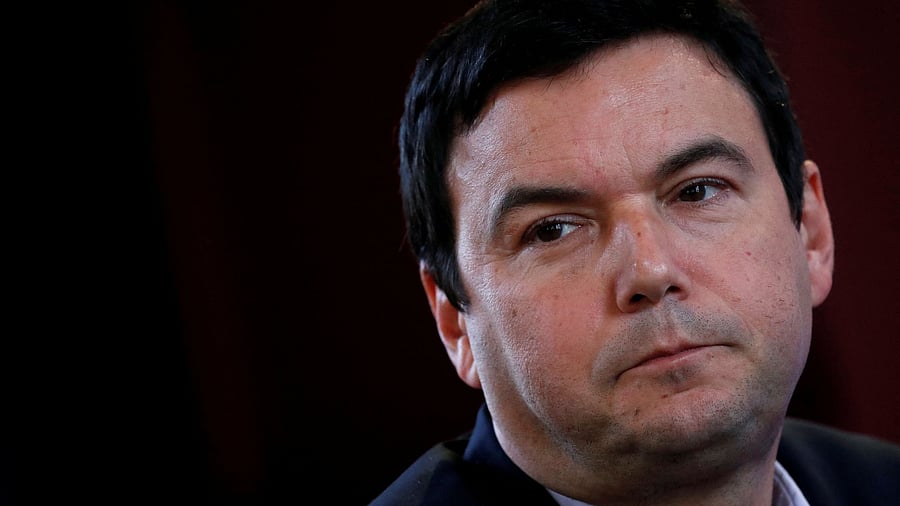
French economist and academic Thomas Piketty.
Credit: Reuters Photo
Hyderabad: The Telangana government has formed an 11-member Independent Expert Working Group headed by former Supreme Court Justice B Sudarshan Reddy to analyse and interpret data from its recent caste survey. This move comes after the government faced criticism regarding the survey's findings, which opposition parties claim indicated a lower-than-expected representation of Backward Classes (BCs) in the state.
The Socio, Economic, Education, Employment, Political and Caste (SEEEPC) Survey 2024 was conducted last November in a massive statewide exercise. The expert group includes prominent social scientists such as French economist Thomas Piketty and Belgian-born Indian economist Jean Dreze, among others. They have been tasked with submitting their analysis within one month.
Thomas Piketty is a professor of economics at the School for Advanced Studies in the Social Sciences and associate chair at the Paris School of Economics. He also serves as co-director of the World Inequality Lab and the World Inequality Database, and is one of the initiators of the Manifesto for the Democratization of Europe. Piketty has authored several influential books including "Capital in the 21st Century" (2014), "Capital and Ideology" (2020), and "A Brief History of Equality" (2022).
The working group was established by an advisory committee of the Telangana Development Planning Society to formulate evidence-based policies for various social sectors based on the SEEEPC Survey data.
While retired Justice Sudarshan Reddy will chair the working group, social scientist Prof. Kancha Ilaiah will serve as Vice Chairman. Other members include Prof. Shantha Sinha, Prof. Himanshu, Dr. Sukhadeo Thorat, Nikhil Dey, Prof. Bhangya Bhukya, Prof. Purushotham Reddy, Prof. Jean Dreze, and Prof. Thomas Piketty. Praveen Chakravarty will act as Member Convenor.
"The Independent Expert Working Group shall analyze and interpret the data of SEEEPC Survey 2024 and submit a report to the Government within a month. Anudeep Durishetty, District Collector of Hyderabad District and State Nodal Officer for the SEEEPC Survey, shall act as Secretary to the Expert Working Group. The Chief Executive Officer of the Telangana Development Planning Society shall provide all necessary secretarial assistance," stated the Government Order issued a few days ago.
"While the orders have been issued, they will decide the meeting dates," State Finance and Planning Secretary Sandeep Kumar Sultania told DH.
The caste survey revealed that more than 50% of Telangana's total population, including Muslim minorities, belongs to Backward Classes.
The survey, conducted by the state planning department, was completed in just 50 days. Approximately 96.9% of Telangana households were surveyed, covering 354,775,554 individuals, making it the largest post-independence caste survey. Around 94,863 enumerators and 9,628 supervisors were deployed across 94,261 Enumeration Blocks. Over 76,000 data entry operators digitized the information within 36 days. Key challenges included 103,000 locked houses, 168,000 families initially hesitant to participate, and 84,137 houses misclassified due to non-residential usage or occupants not being Telangana residents.
The SEEEPC survey found that Backward Classes, including Muslims, constitute 56.33% of the state population. Muslims in the Backward Classes (BC) category numbered 3,576,588 (10.08%). People other than Muslims belonging to Backward Classes (BC) totaled 16,409,179 (46.25%); those belonging to Scheduled Castes numbered 6,184,319 (17.43%); Scheduled Tribes accounted for 3,705,929 people (10.45%); and 5,601,539 people, including Muslims, belonged to Other Castes (OC), constituting 15.79% of the population.